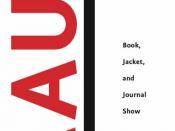"Don't take too seriously the advice of people who supposedly know better than you do. As long as you are finding out things we didn't know before, you are doing something right."
~Doreen Kimura
The quest for knowledge can be a wonderful thing. It can help to empower those that need confidence, and can also assist in daily tasks. It can also provide an individual the means to improve his or her lifestyle. But did you know that sometimes a little bit of knowledge can be a dangerous thing? Truly dangerous if it is not respected and handled with care. And nowhere is that most apparent, than on the campuses and in the classrooms of this nations institutions of higher education.
Even on the most tolerant of campuses, there exist individuals who are opinionated, biased, and judgmental of others' perspectives. That is to be expected. But what happens when the professors and educators (or those who have put themselves in the role as educator) have taken their freedoms for granted and base everything that they say has merit given his or her First Amendment right?
Academic Freedom
Academic Freedom exists.
."in order that society will have the benefit of honest judgment and independent criticism which might (otherwise) be withheld because of fear of offending a dominant social group or transient social attitude" (Kimura, 1993). It's a regulation to help make sure that professors and students alike have a voice on campus.
The American Association of University Professors is "a national organization committed solely to college and university faculty members. It defends academic freedom and tenure, advocates collegial governance, and develops policies ensuring due process" (Sleboda,2004). They have been extremely vocal in the assurance of academic freedom in academe.
One current section on academic freedom reads as follows:
"Freedom of thought...


